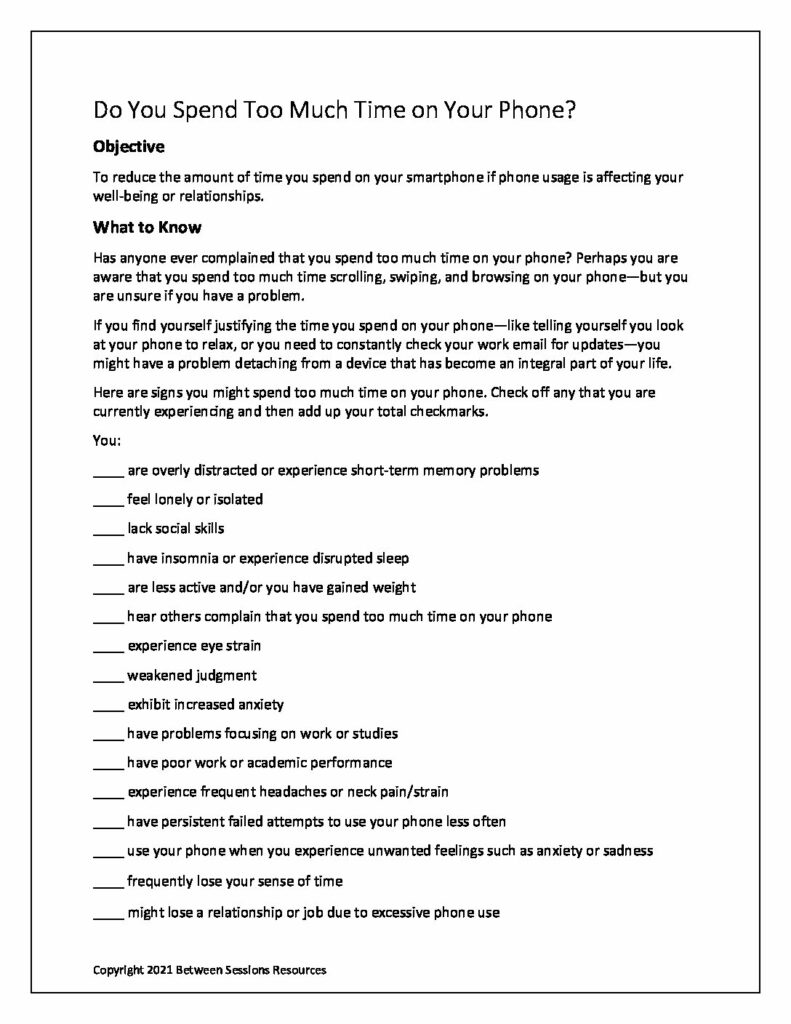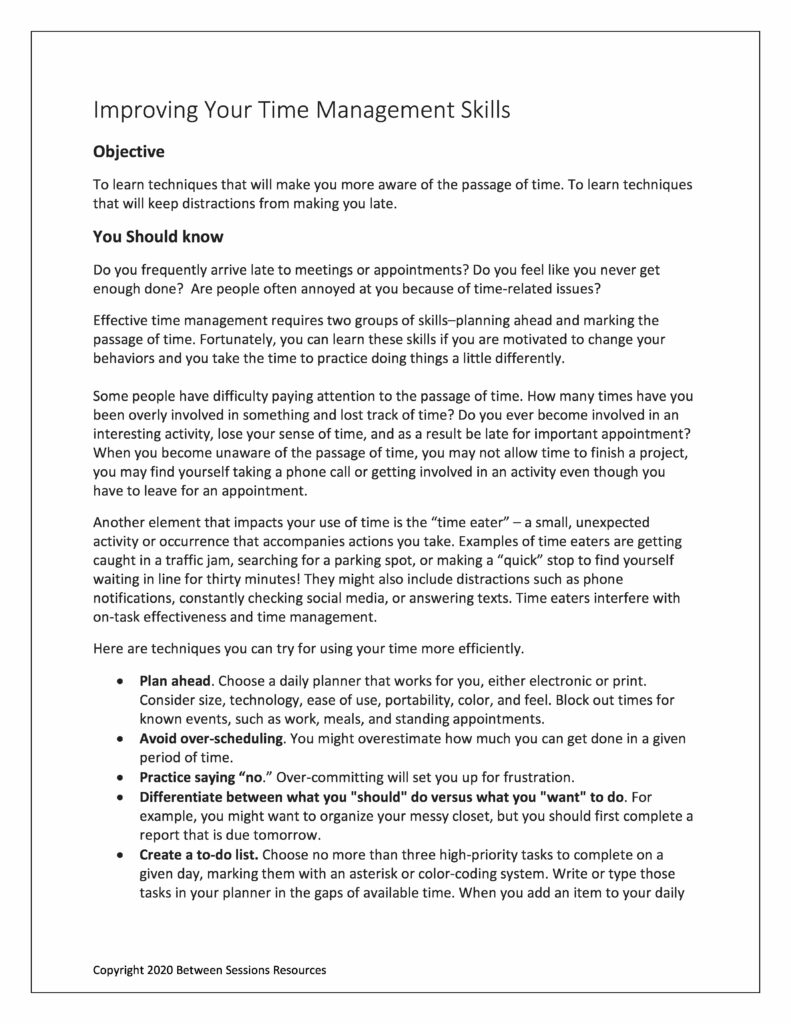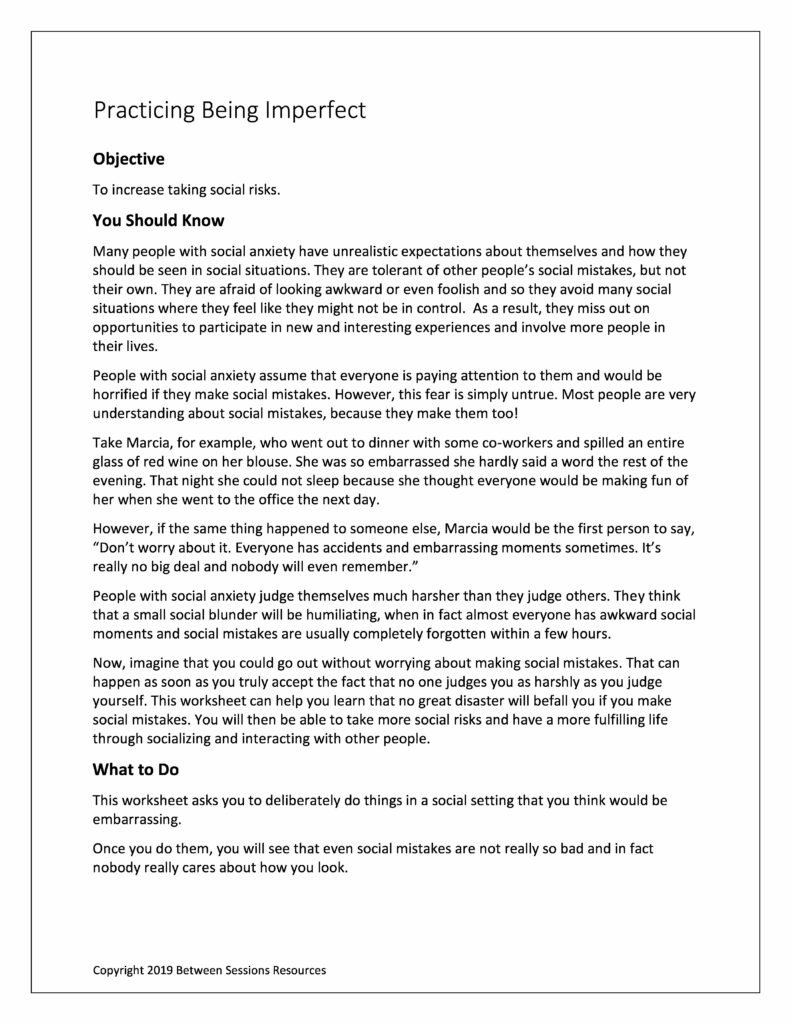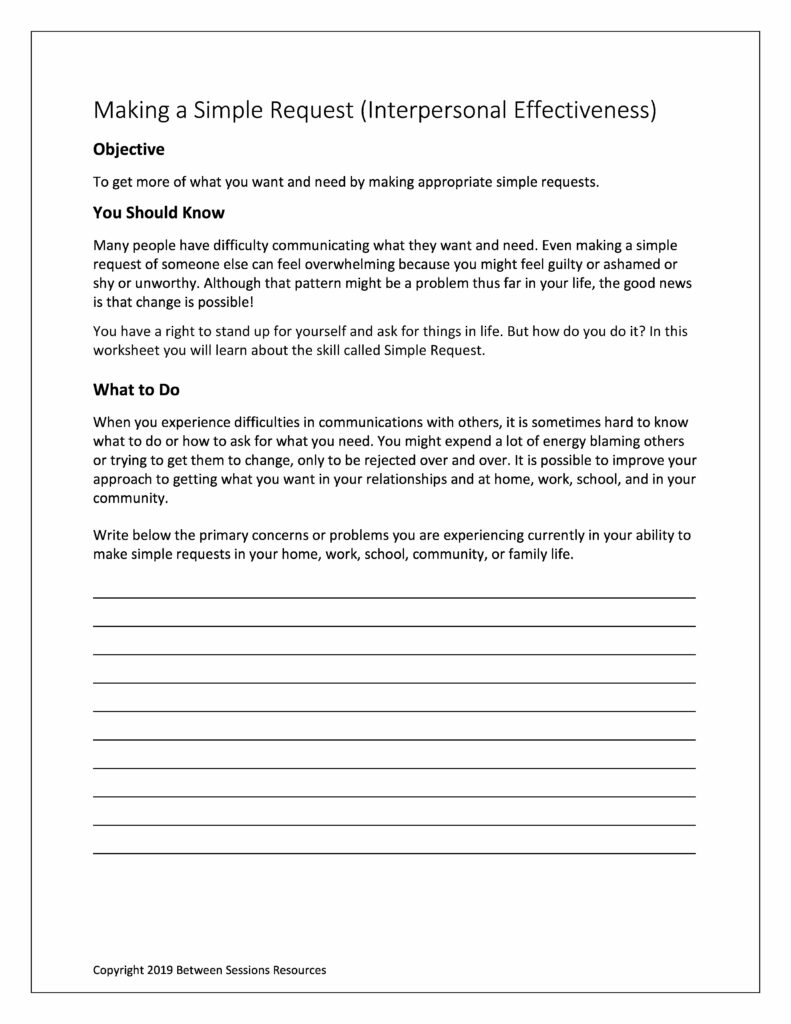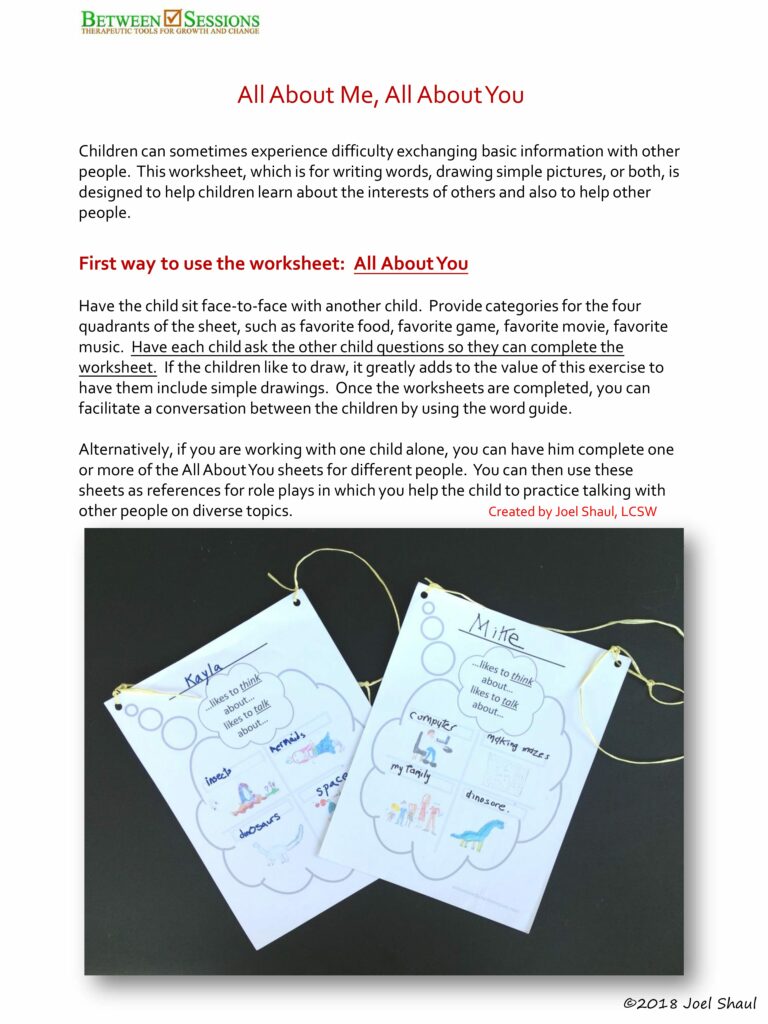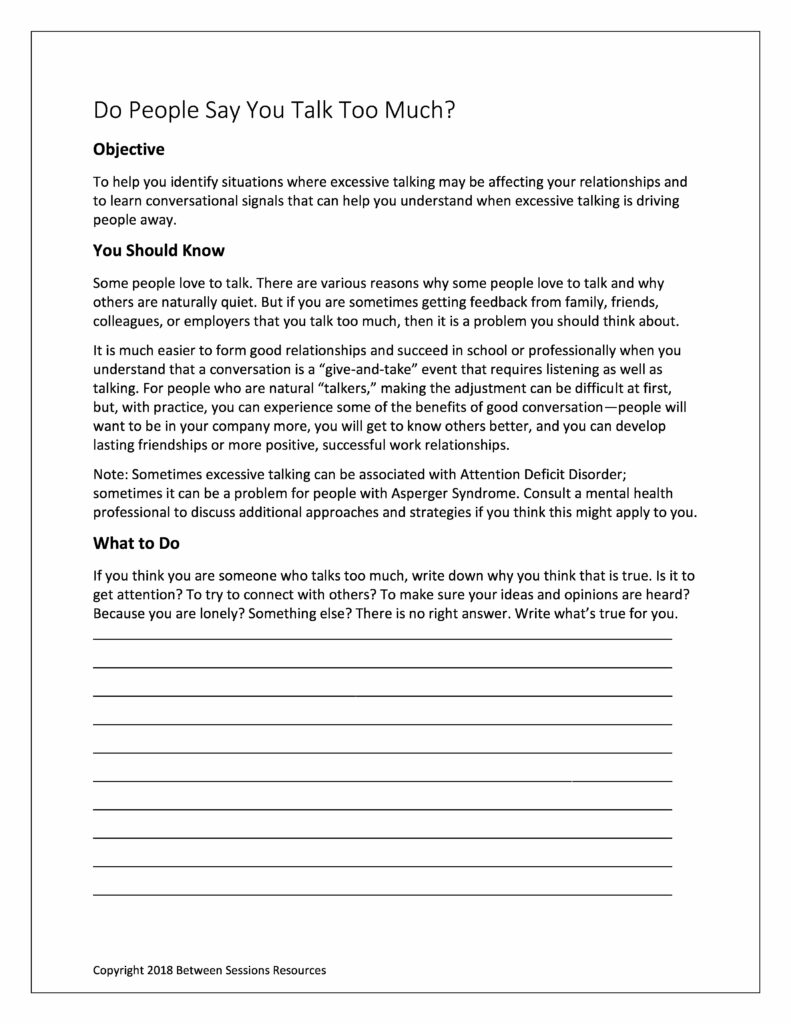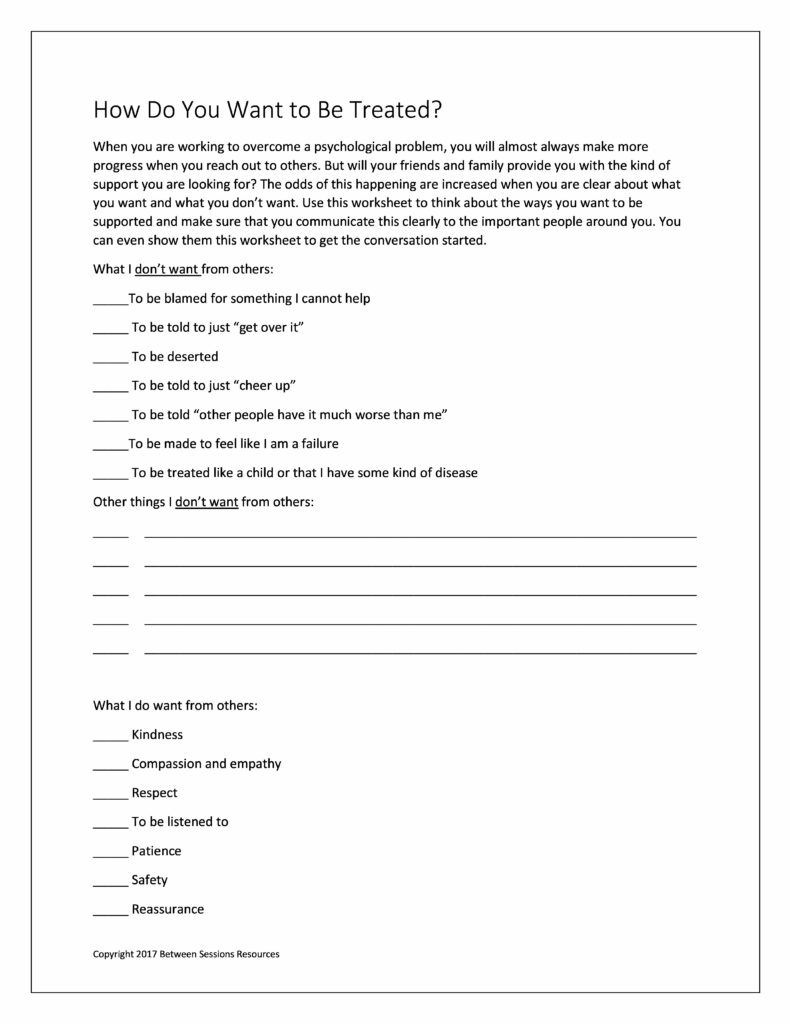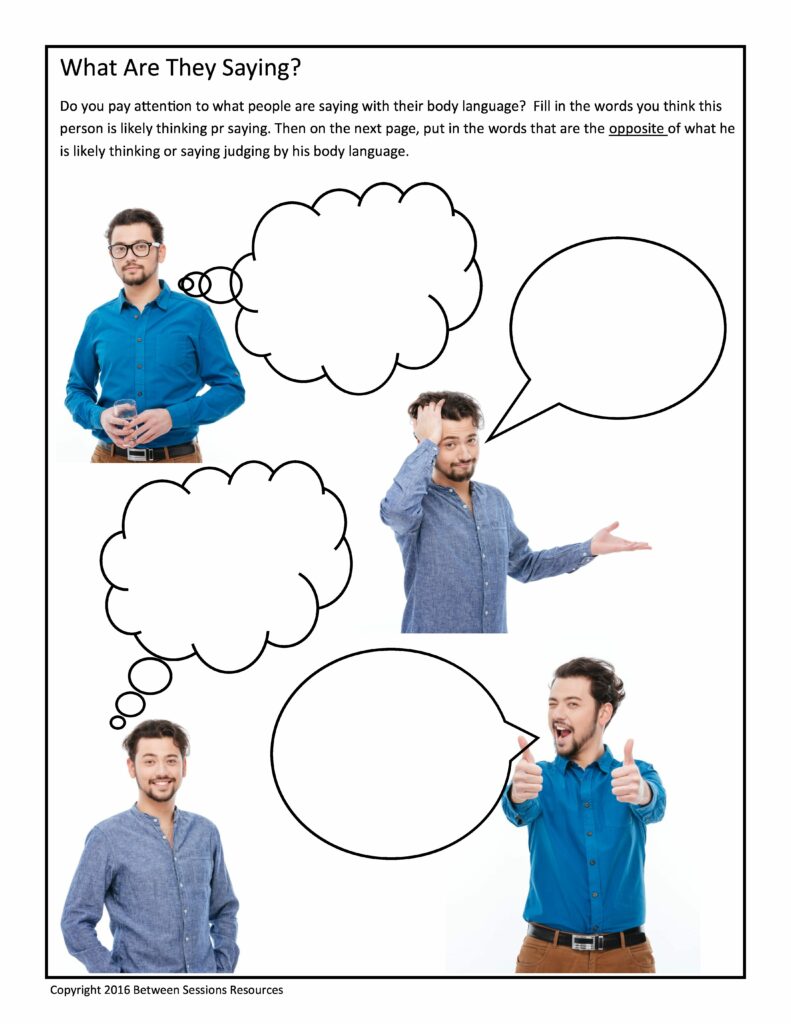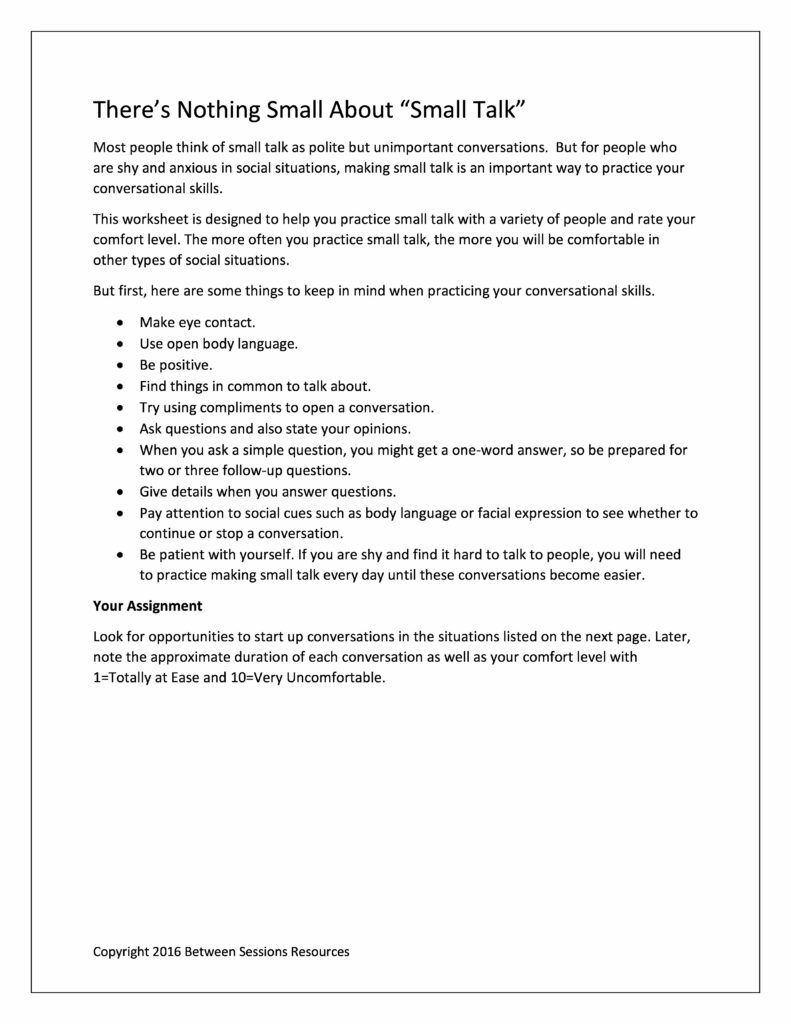This worksheet describes the “symptoms” of phone addiction. It provides a checklist of behaviors that might indicate a problem. It also eight suggests on how to become less dependent on a phone if it is interfering with other aspects of your life. A chart is provided to help people develop a plan to decrease their phone dependence. (1221, phone addiction, addiction, relationships)
This worksheet helps people with time management problems become more aware of the passage of time and the distractions that can become “time-eaters.” It gives specific techniques to use to help people plan their time more effectively. (ADHD, ASD, time management, 0620)
This worksheet is designed to help people take more social risks. Many people with social anxiety dread that they will embarrass themselves in public. This worksheet asks them to choose three situations where they deliberately make a social mistake in order to see that others really don’t care. (social anxiety, shyness, thought distortion, exposure therapy, 0520)
This worksheet is designed to help people get more of what they need learning how to make appropriate simple requests. This a DBT technique intended to help people develop their personal effectiveness. (DBT, assertiveness, 0419)
This activity is designed to help children learn about other children. It teaches the most basic empathy skill, showing interest in others. (social skills, Asperger Syndrome, 0219)
This worksheet is designed to help people identify situations where excessive talking may be affecting their relationships and to help them learn conversational signals that can aid in more appropriate give and take conversations. (ADHD, Asperger Syndrome, relationships, social skills, 0219)
This worksheet is intended to help people think about the character traits they value and wish to develop. (insight, character development, 1017)
This worksheet is designed to help people think about how others can help them with their psychological problems. The worksheet asks them to think about both the things that they want from others as well as the things they don’t want. (depression, social skills, communication, 0417)
This worksheet asks people to imagine what a person is thinking or saying by simply looking at his body language. (social skills, Asperger Syndrome, social anxiety, 1216)
This worksheet is designed to help people with social anxiety practice simple conversational skills. The worksheet gives tips on how to handle social conversations and assignments to practice spontaneous conversations. (shyness, social anxiety, Asperger Syndrome, 2016)

